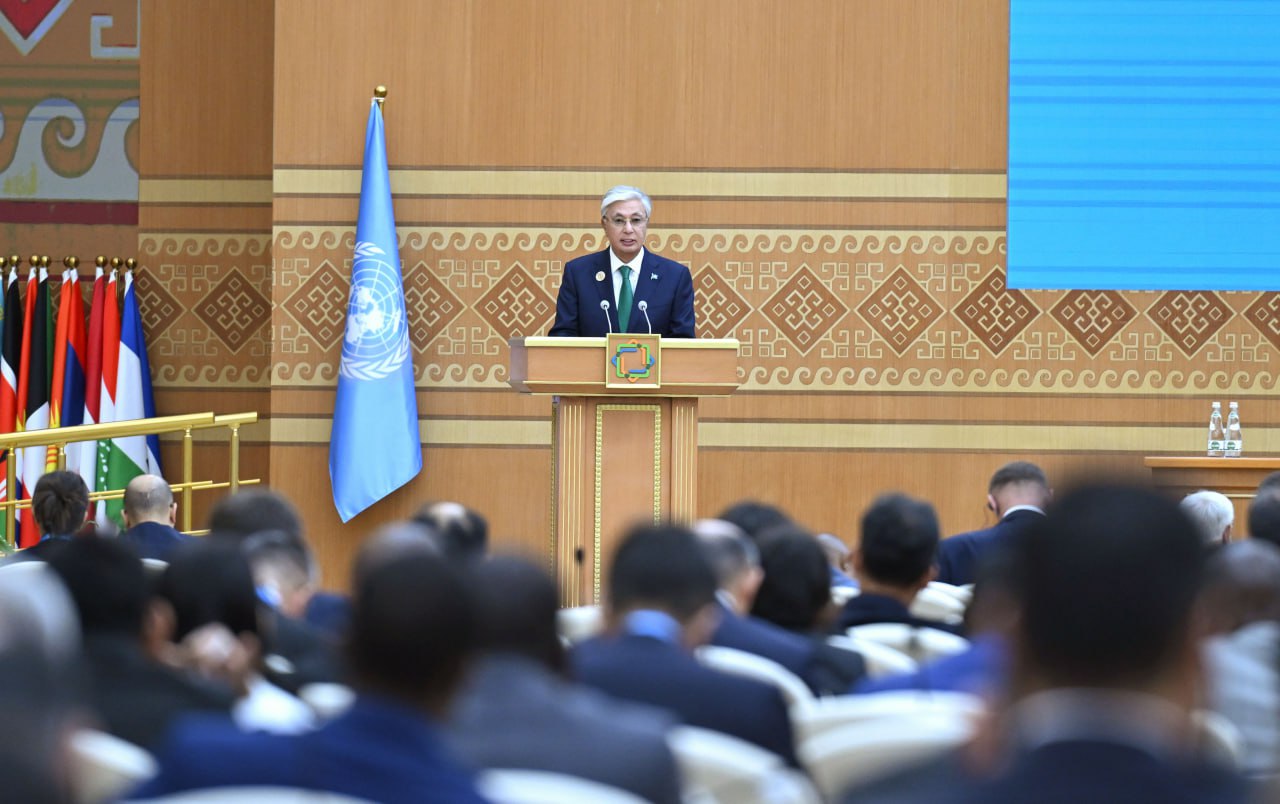ASTANA, Kazakhstan, August 5. President Kassym-Jomart Tokayev of Kazakhstan outlined the country’s strategic initiatives to strengthen regional connectivity, accelerate digital development, and address climate challenges at the 3rd United Nations Conference on Landlocked Developing Countries, which opened in the Awaza National Tourist Zone of Turkmenistan, Trend reports via Akorda.
Tokayev emphasized the growing urgency of addressing structural barriers faced by landlocked developing nations, noting that these countries, home to over half a billion people, remain disproportionately affected by restricted access to global markets, financing, and technology.
“Limited regional transport connectivity remains the core challenge for landlocked developing countries. These constraints come with high trade and transit costs, economic vulnerability, and reduced competitiveness,” the Kazakh leader said.
Among the priority projects is the development of strategic transport corridors, including the North–South route and the Trans-Caspian Middle Corridor. According to Tokayev, the long-term vision is the creation of an integrated multimodal network of rail, road, air, and logistics hubs that would solidify Kazakhstan’s role as a Eurasian transit center, currently handling nearly 85 percent of all land shipments between Asia and Europe.
He also highlighted national investments in the digital sector, including the launch of the AlemAI artificial intelligence center and a newly operational supercomputer in Astana. These initiatives, Tokayev noted, are part of Kazakhstan’s broader push to foster innovation and international scientific collaboration.
“Kazakhstan has launched the AlemAI Center for Artificial Intelligence and recently unveiled a supercomputer. Our doors are open for scientific cooperation,” he said.
On climate action, Tokayev emphasized the vulnerability of many landlocked nations to environmental degradation, pointing to water scarcity, glacial melt, and desertification as critical issues. He invited participants to attend a Regional Environmental Summit co-hosted with the United Nations in Astana in April 2026, aiming to strengthen regional cooperation and secure international support for climate resilience.
Tokayev announced the recent signing of an agreement with the UN to establish a Regional Center for Sustainable Development Goals in Almaty, which will serve Central Asia and Afghanistan. He called this a “milestone achievement” aligned with the goals of the Awaza Programme of Action.
“We are moving from a landlocked reality toward a land-linked future, where overland connectivity becomes just as critical as seaborne access,” Tokayev concluded.







